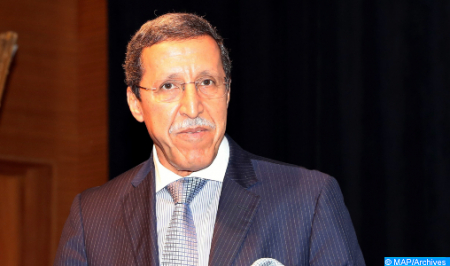Ambassador to UN Points Up Royal Diplomacy’s Axes to Students of London School of Economics
Morocco’s Ambassador and Permanent Representative to the United Nations, Omar Hilale, was the guest of honor on Tuesday at a conference organized by the London School of Economics (LSE), during which the diplomat outlined the main axes of Moroccan diplomacy under the leadership of His Majesty King Mohammed VI. Within the framework of this academic conference, which was organized at the initiative of the LSE Moroccan Society and the LSESU United Nations, Hilale gave a comprehensive presentation on the Kingdom’s traditional diplomacy, which is rooted in a long history of diplomatic relations with several countries of the world for more than six centuries. He also highlighted the Kingdom’s advanced status with the European Union and the solid and reliable alliance it enjoys with Arab and Islamic countries, adding that Morocco has also materialized its openness to the Asian and American continents through an extensive diplomatic network and ties of friendship and cooperation that illustrate the Kingdom’s cultural, civilizational and economic influence. Regarding the African dimension of Morocco’s foreign policy, Hilale emphasized: “As an African country, Morocco has always anchored its relations in a policy of South-South cooperation with African countries, based on historical ties and committed to the socio-economic development of the continent”. The Moroccan diplomat had a rich exchange with LSE students on various topics, including the Kingdom’s economic diplomacy, the territorial integrity and autonomy plan in the Moroccan Sahara, as well as “soft diplomacy” through the vector of sport, particularly in the context of the historic performance of the Moroccan national football team that marked the 2022 World Cup in Qatar. The LSE Moroccan Society is a student club that aims to raise awareness of political, economic and social issues in Morocco, along with the LSE United Nations Society, a multilateral discussion center created by LSE students on their campus. Through these two platforms, students invite high-level speakers to share their experiences and offer opportunities to pursue careers in international organizations such as the United Nations.

